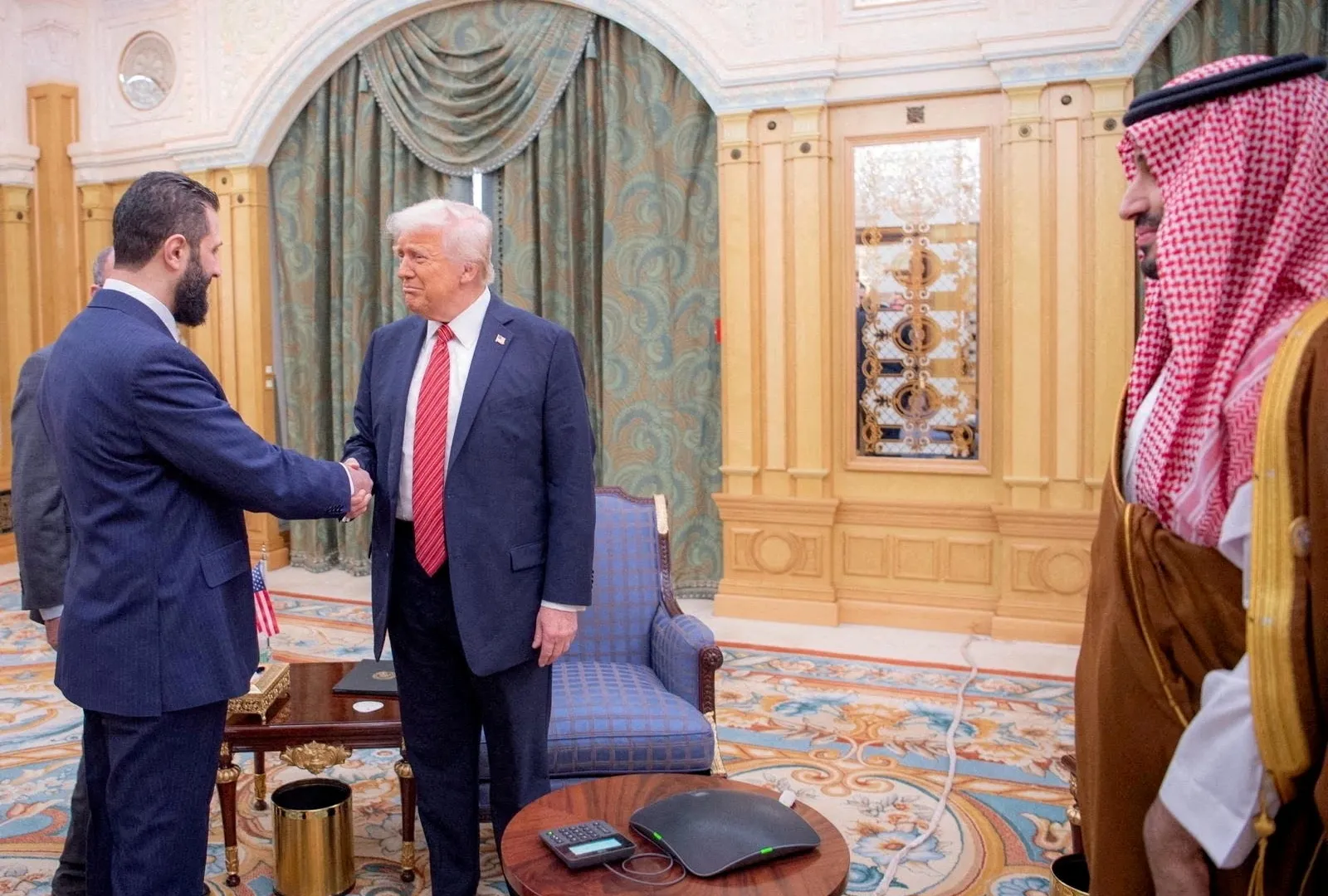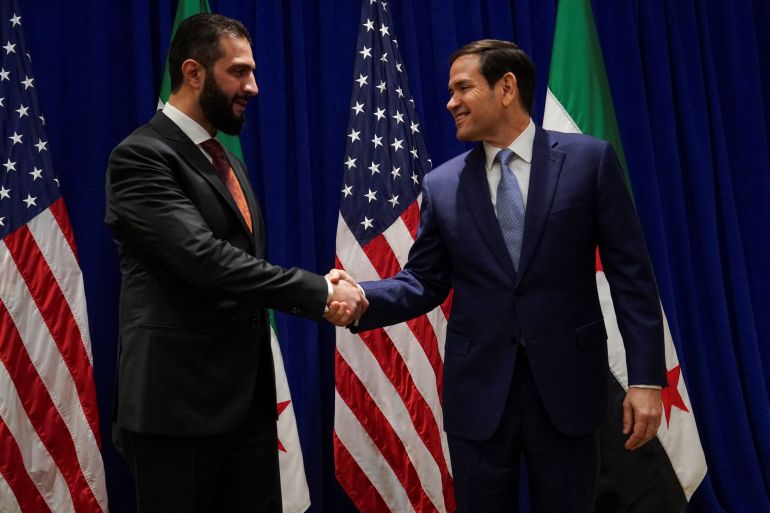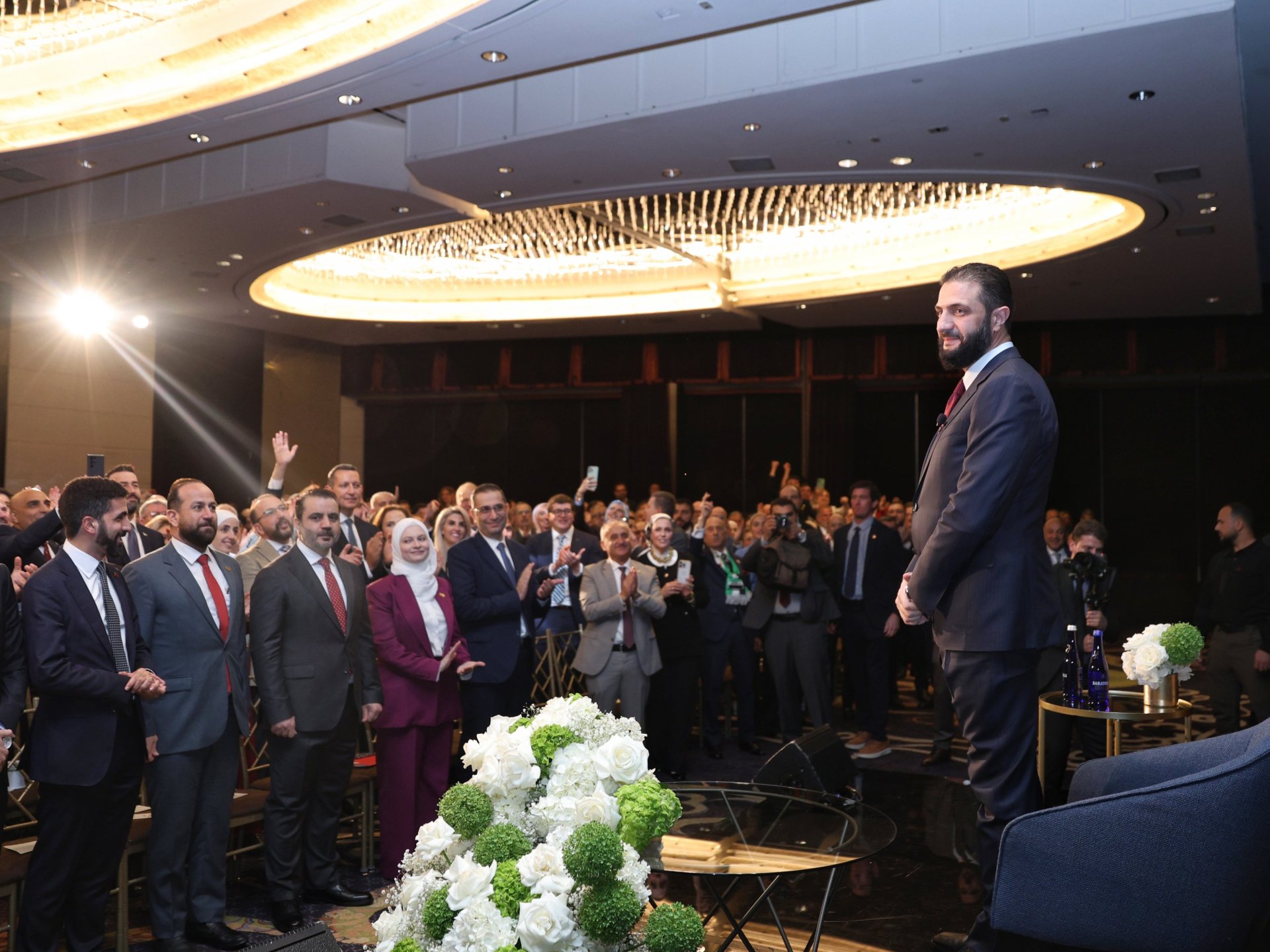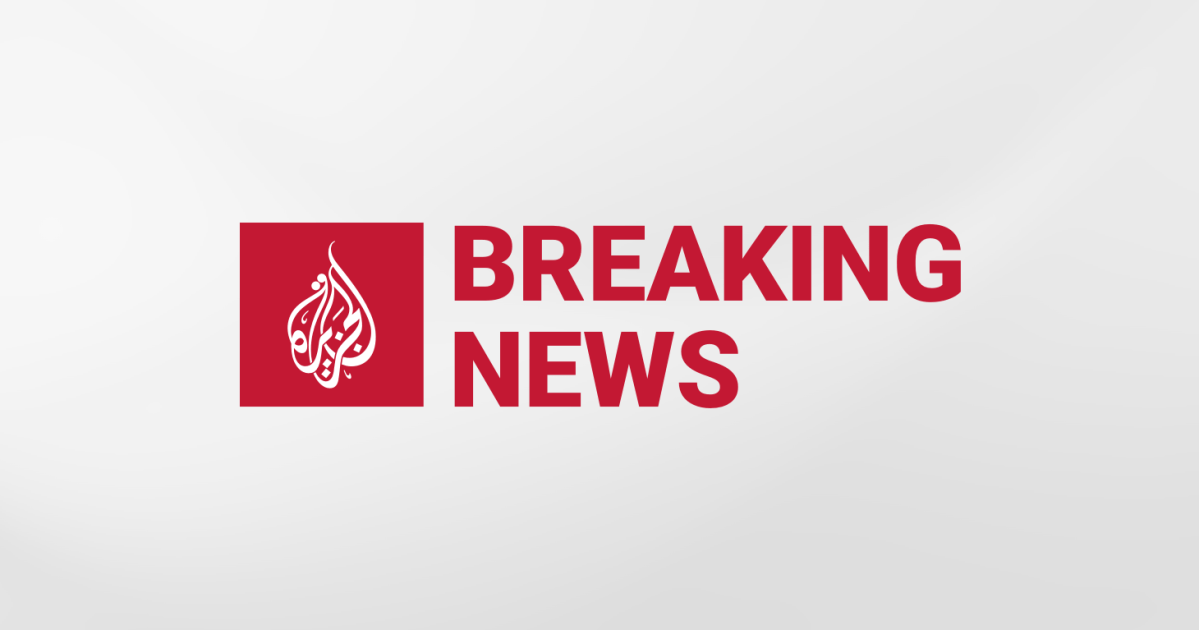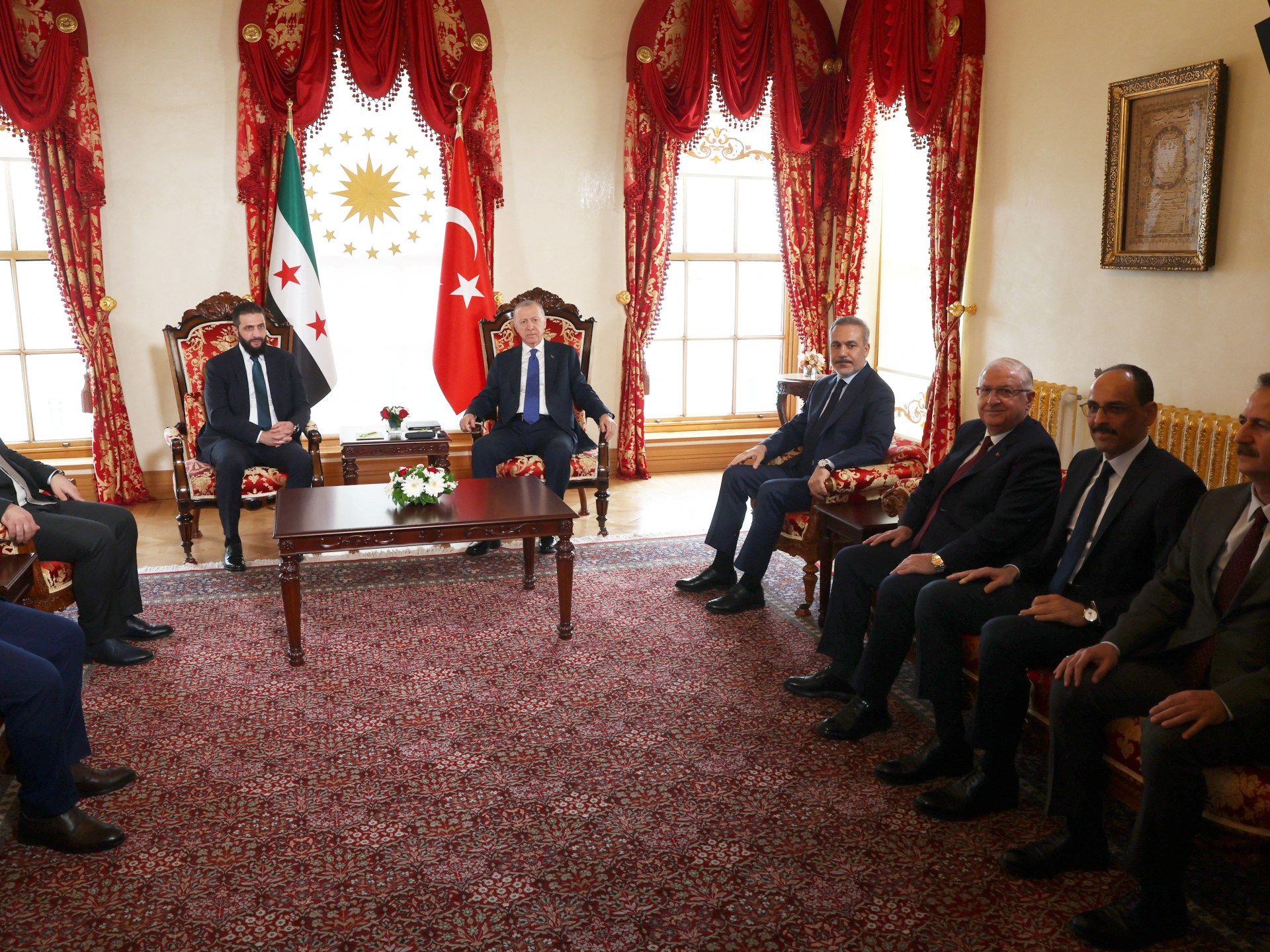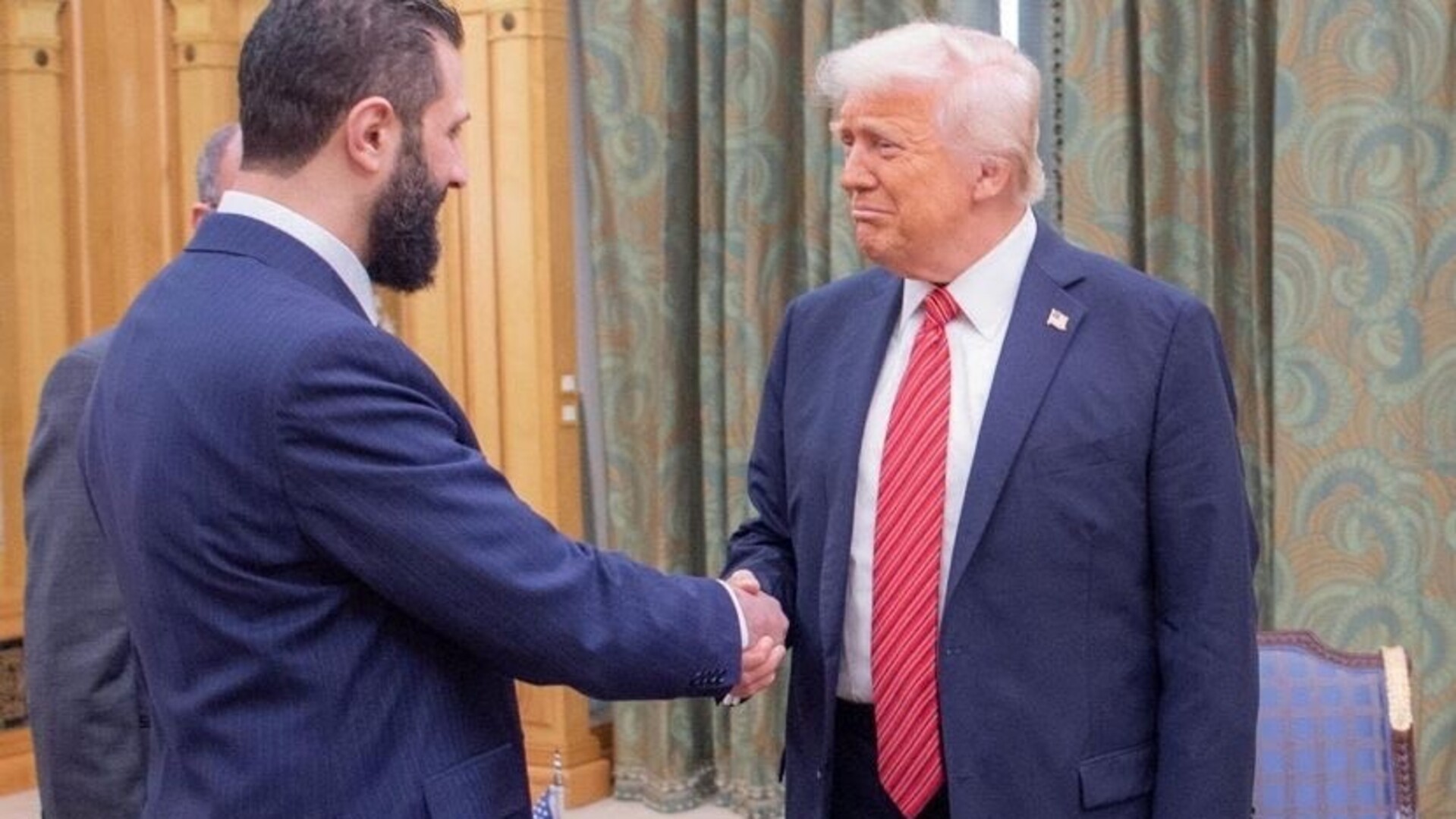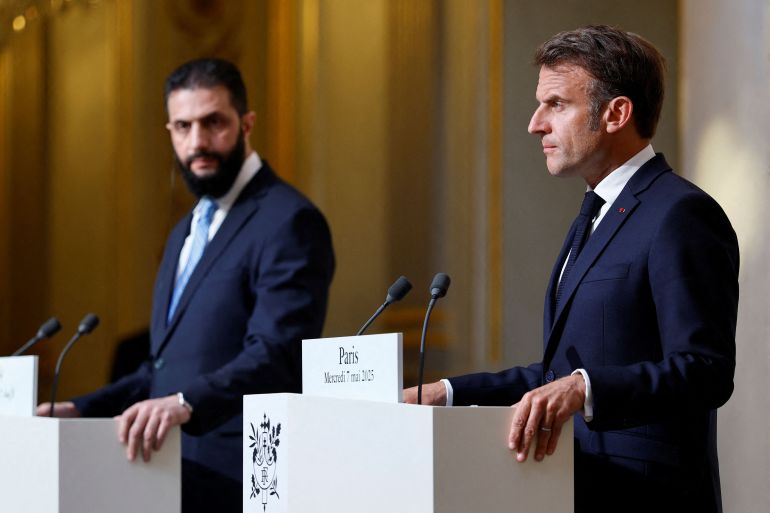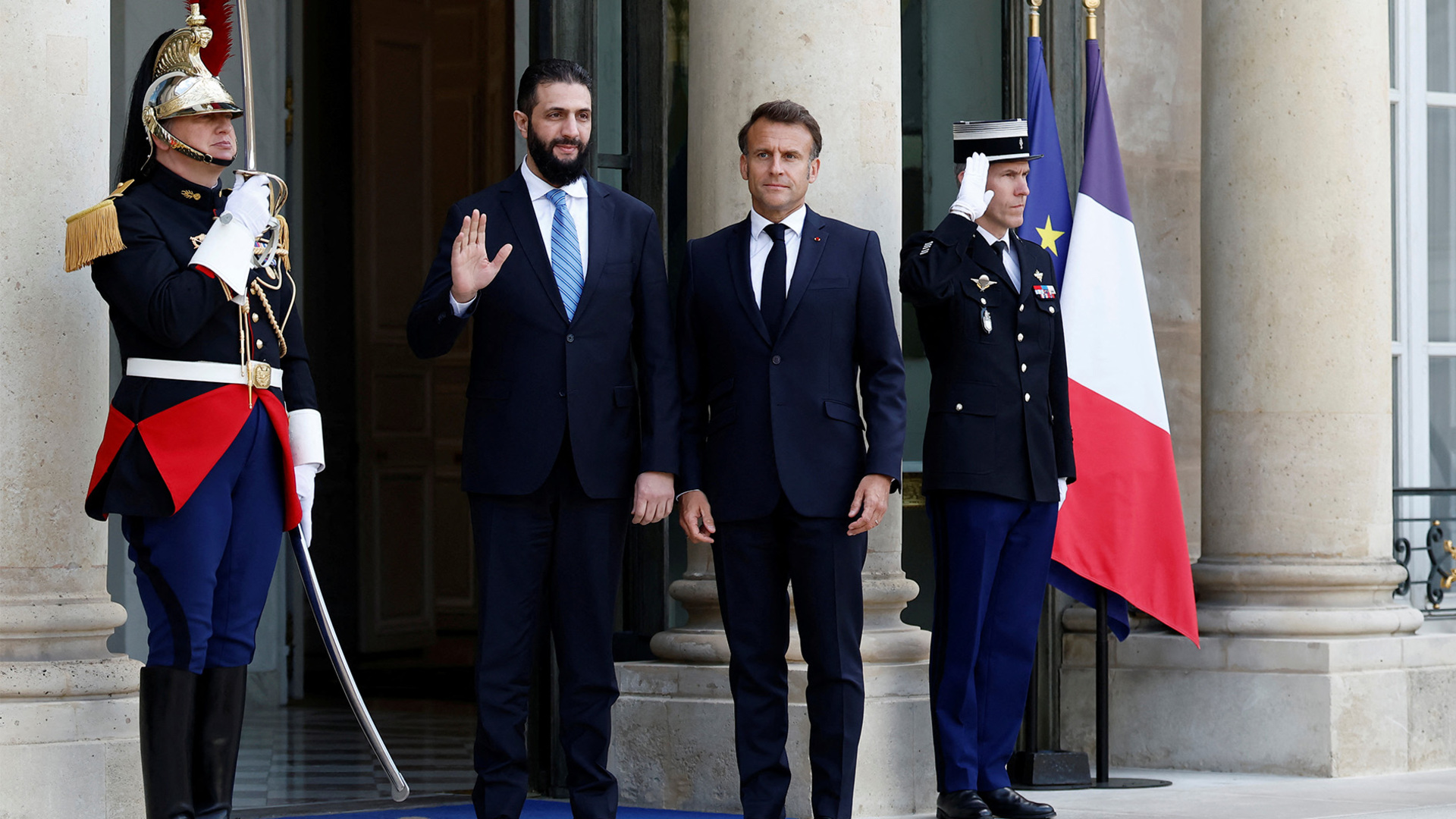Trump to host Syria’s al-Sharaa for talks at White House, envoy says | Donald Trump News
Al-Sharaa’s trip, planned for November 10, will be first-ever visit by a Syrian president to the White House.
United States President Donald Trump will host Syria’s interim leader, Ahmad al-Sharaa, for talks on November 10, according to Washington’s envoy to Damascus, in what would mark the first-ever visit by a Syrian president to the US capital.
Tom Barrack, the US envoy to Syria, told the Axios newspaper on Saturday that al-Sharaa is expected to sign an agreement to join an international US-led alliance against the ISIL (ISIS) group during his visit.
Recommended Stories
list of 4 itemsend of list
The Reuters news agency also cited a Syrian source familiar with the matter as saying that the trip was expected to take place within the next two weeks.
According to the US State Department’s historical list of foreign leader visits, no previous Syrian president has paid an official visit to Washington.
Al-Sharaa, who seized power from Bashar al-Assad last December, has been seeking to re-establish Syria’s ties with world powers that had shunned Damascus during al-Assad’s rule.
He met with Trump in Saudi Arabia in May, in what was the first encounter between the two nations’ leaders in 25 years.
The meeting, on the sidelines of Trump’s get-together with the leaders of the Gulf Cooperation Council, was seen as a major turn of events for a Syria that is still adjusting to life after the more than 50-year rule of the Assad family.
Al-Sharaa also addressed the United Nations General Assembly in New York in September.
Barrack, the US envoy to Syria, told reporters on the sidelines of the Manama Dialogue in Bahrain that Washington was aiming to recruit Damascus to join the coalition the US has led since 2014 to fight against ISIL, the armed group that controlled about a third of Syria and Iraq at its peak, between 2014 and 2017.
“We are trying to get everybody to be a partner in this alliance, which is huge for them,” Barrack said.
Al-Sharaa once led Syria’s offshoot of al-Qaeda, but a decade ago, his anti-Assad rebel group broke away from the network founded by Osama bin Laden, and later clashed with ISIL.
Al-Sharaa once had a $10m US reward on his head.
Al-Sharaa, also referred to as Abu Mohammed al-Julani, had joined fighters battling US forces in Iraq before entering the Syrian war. He was even imprisoned by US troops there for several years.
The US-led coalition and its local partners drove ISIL from its last stronghold in Syria in 2019.
Al-Sharaa’s planned visit to Washington comes as Trump is urging Middle East allies to seize the moment to build a durable peace in the volatile region after Israel and Hamas earlier this month began implementing a ceasefire and captives’ deal. That agreement aims to bring about a permanent end to Israel’s brutal two-year war in Gaza.
The fragile ceasefire and captive release deal continues to hold, but the situation remains precarious.
Israeli strikes in Gaza earlier this week killed 104 people, including dozens of women and children, the enclave’s health authorities said. The strikes, the deadliest since the ceasefire began on October 10, marked the most serious challenge to the tenuous truce to date.
Meanwhile, Syria and Israel are in talks to reach an agreement that Damascus hopes will secure a halt to Israeli air strikes and the withdrawal of Israeli troops who have pushed into southern Syria.
Barrack told the Manama Dialogue earlier that Syria and Israel continued to hold de-escalation talks, which the US has been mediating.
He told reporters that Syria and Israel were close to reaching an agreement, but declined to say when exactly a deal could be reached.
Israel and Syria have been Middle East adversaries for decades.
Despite the overthrow of al-Assad last December, territorial disputes and deep-seated political mistrust between the two countries remain.
